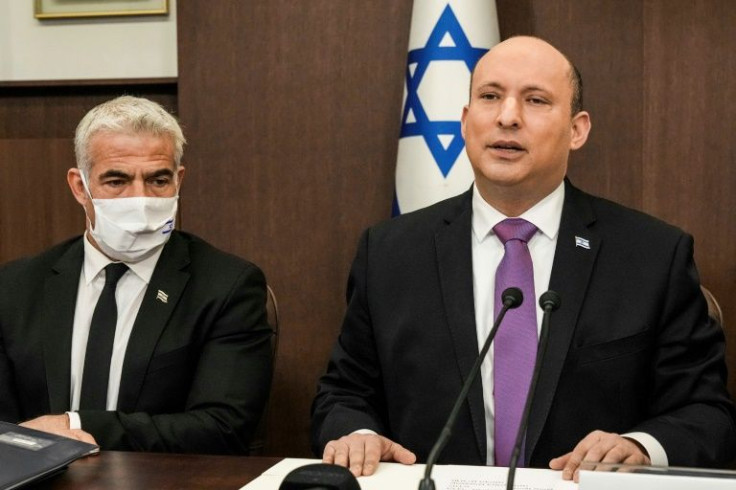Explainer-Israel On Course For Another Election

Israeli Prime Minister Naftali Bennett has called for parliament to be dissolved, putting the country on the path to a its fifth election in less than four years.
WHAT HAPPENED?
After ending the record reign of former Prime Minister Benjamin Netanyahu in June 2021, Bennett's unlikely government of hard-right, liberal and Arab parties was fragile from the start.
With a razor-thin parliamentary majority and divided on major policy issues such as the Israeli-Palestinian conflict and state versus religion, the eight-faction alliance began to fracture when a handful of members rebelled.
The decisive deadlock was over the renewal of regulations that enable the legal administration of settlers in the occupied West Bank. They will be automatically extended if the decision to dissolve the Knesset passes before they expire at the end of June, according to the Israel Democracy Institute.
Bennett said he did not want the settlers, because of political feuding, to find themselves under the same military rule as millions of Palestinians.
On Monday, he announced he would dissolve the Knesset and call a new election. Under a coalition deal, Foreign Minister Yair Lapid will assume the top office in a caretaker capacity.
WHAT'S NEXT?
Upon passing preliminary reading, the dissolution bill must still get through a parliamentary committee and then pass three more votes with an absolute majority of at least 61 of the Knesset's 120 lawmakers.
If that happens, the Knesset will have to set an election for no later than five months from the day the bill is written into law. The period will spell further turmoil for Israel as it grapples with rising inflation, Iran and the conflict with the Palestinians.
COULD NETANYAHU MAKE A COMEBACK?
Yes - and he has vowed to do just that. Netanyahu's conservative Likud party is already the largest faction in parliament and is leading in the polls.
But no single party in Israel has ever won an outright majority and he would need to win support from others if he is to break his own record and head a new government for the sixth time. In the four elections Israel held between 2019-2021, he failed to put together the right-wing religious coalition he sought.
Likud members have said they may try to form a new right-wing government under Netanyahu's leadership before the Knesset dissolves itself and thus scupper a snap election, though that scenario appears remote.
Netanyahu's prospects could also be clouded by his corruption trial on charges of bribery, fraud and breach of trust, which he vehemently denies. Some coalition lawmakers are already pushing legislation that would bar anyone under criminal indictment from heading a government but it is unclear whether they can muster enough votes to write it into law.
Israel's multi-party political map may also shift and change before the election, with likely new alliances between the factions. And although Netanyahu is popular among the rightist voter base, some senior Likud members are vying to succeed him.
(Writing by Maayan Lubell; Editing by Alison Williams)
© Copyright Thomson Reuters 2024. All rights reserved.







